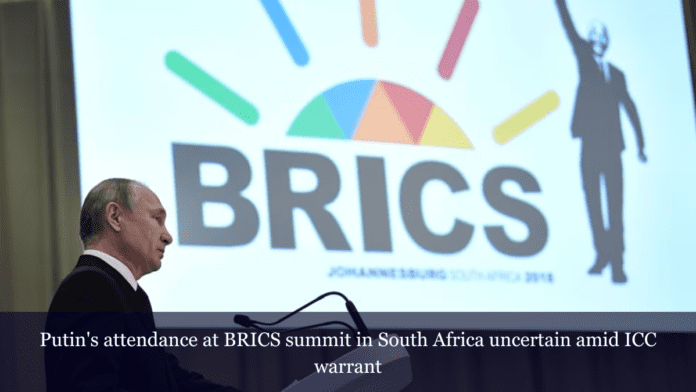The Russian president is expected to attend the BRICS summit in South Africa. However, he is currently under indictment by the International Criminal Court (ICC), of which South Africa is a member. This situation creates a problem in terms of international law.
Established in 2002, the ICC operates as a permanent international criminal court. The BRICS summit takes place in South Africa, a party to the Rome Statute that established the ICC. Although South Africa is obligated to arrest President Putin as an ICC member, President Putin enjoys sovereign immunity as the incumbent Russian head of state. Diplomatic immunity is a fundamental pillar of international law accepted by all states. This situation prompts us to consider whether the ICC was justified in issuing an arrest warrant for President Putin.
Issuing an arrest warrant for an incumbent head of state raises concerns about the violation of sovereign equality. Sovereign equality asserts that all nation-states, regardless of differences in power, wealth, or size, are equal, and no nation can judge another. This principle is fundamental to international law, and issuing an arrest warrant for an incumbent head of state contradicts this principle. The argument that the ICC is an international criminal tribunal not subordinate to any state is weak since the nation-state remains the highest form of organization. The ICC derives its mandate from nations; not every nation accepts its jurisdiction. Therefore, the ICC should refrain from stretching its mandate by going against fundamental principles of international law.
The ICC’s warrant against President Putin raises more than just legal concerns. This action could significantly damage the ICC’s reputation among non-Western states. The court has already faced criticism from African countries regarding bias in its dealings with non-Western countries. The warrant against the Russian president faces similar issues, as charges are brought after an investigation into a war zone and against someone unlikely to be brought to the ICC in the foreseeable future. In 2015, Sudanese President Omar al-Bashir came to South Africa while being wanted by the ICC but was not arrested. There is no reason to believe that South Africa or any other country will be willing to arrest the Russian president. This further worsens the ICC’s perception across the non-Western world, portraying it as another tool of Western hegemony. This is unfortunate since the ICC represents a remarkable achievement in holding those with great power accountable for their crimes.
The ICC’s action does not aid the situation in Ukraine and may escalate the threat faced by the Russian regime, making a negotiated settlement even harder to achieve. While a victory for Ukraine may favor the West, if Ukraine is defeated, the deterrent effect of the ICC will weaken, eroding Western dominance. The ICC should not be utilized in a manner that allows it to be seen as a tool of Western hegemony. To survive in the multipolar world that lies ahead, the ICC should respect sovereign nations and await the departure of leaders before investigating them, with the permission of their respective states.
To sum it up, the ICC’s decision to issue an arrest warrant for President Putin and his attendance at the BRICS summit raises significant legal and geopolitical concerns. It challenges the principle of sovereign equality and risks undermining the ICC’s reputation among non-Western states. It does all of this for no tangible gain since any state arresting the Russian president will be viewed as an act of war by the Russian Federation. To ensure its effectiveness and legitimacy, the ICC should navigate these complex issues carefully, respecting sovereign nations while upholding the principles of justice and accountability that underpin its mission.




